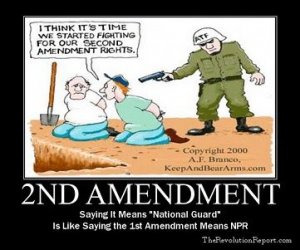- Thread starter
- #61
And what rights does God limit or not limit? Are you privy to what he decides?
I have the riht to be free from an opressive government they can't take that away.
God gives rights the government doesn't give them.
When did she/he give these rights? How do you know these rights are given? What other rights are given?
When I took my first breath and fired my first gun



